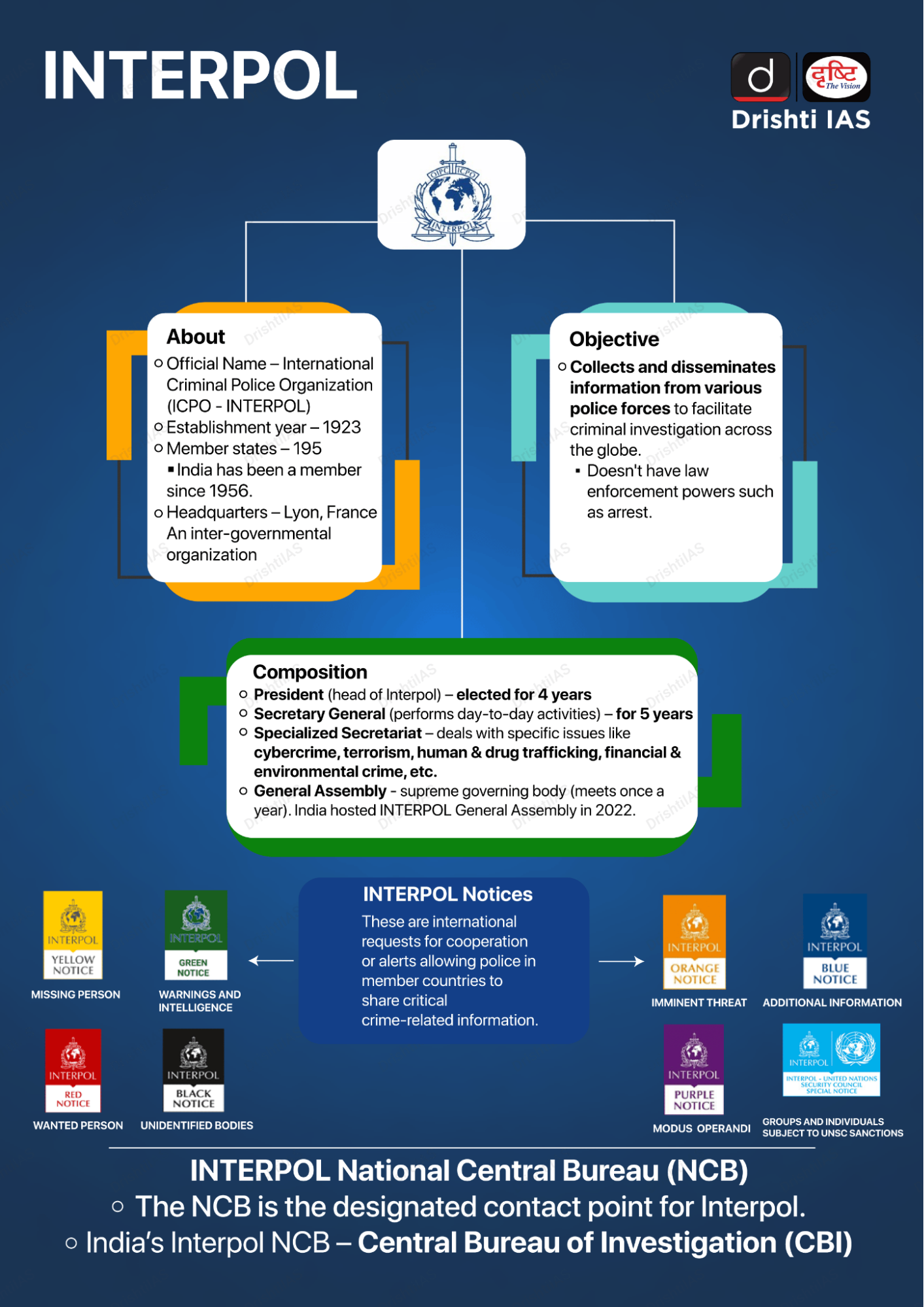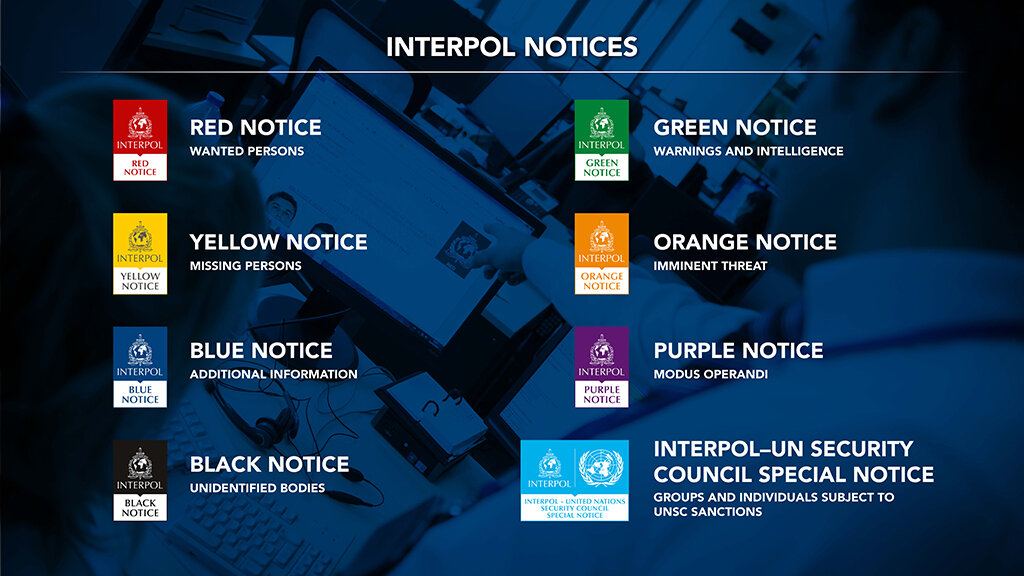Important Facts For Prelims
Notices of Interpol
- 24 Feb 2024
- 4 min read
Why in News?
Recently concerns have been raised about the misuse of Interpol’s notice system, especially the issuance of blue corner notices, which are less scrutinised than their red corner notices.
- The number of blue notices has approximately doubled in the last ten years.
- Critics have argued that countries often exploit existing protocols to target political refugees and dissidents.
What is the Interpol Notice System?
- About:
- Interpol serves as a vital information-sharing network for national police forces to combat transnational crimes.
- Interpol (General Secretariat) issues notices to member states for missing or wanted persons, which, while not mandatory for states to follow, are often treated as warrants for arrest and extradition.
- Requesting Authority: Notices are issued at the request of:
- A member country’s Interpol National Central Bureau
- At the request of International Criminal Tribunals and the International Criminal Court to seek persons wanted for committing crimes within their jurisdiction, notably genocide, war crimes, and crimes against humanity.
- At the request of the United Nations concerning the implementation of sanctions imposed by the Security Council.
- Types of Notices:
What are the Concerns Regarding the Misuse of Interpol Notice?
- Blue Notice Vs Red Notice:
- Blue Notice: Referred to as an "enquiry notice," enables police forces in member states to exchange crucial crime-related information, including verifying a person's criminal record and location, among other details.
- Blue Corner notices are issued before the filing of criminal charges.
- Red Notice: Issued by a member state to apprehend a wanted criminal through extradition or other lawful means, targeting individuals sought by national jurisdictions for prosecution or to serve a sentence following an arrest warrant or court ruling.
- Interpol can act on a request from any country, regardless of whether it is the fugitive's home country, as long as the alleged crime occurred there.
- The individual in question may be detained and apprehended while moving through a member state, with additional adverse outcomes including the freezing of bank accounts.
- Interpol lacks the authority to mandate law enforcement agencies in any nation to apprehend the individual targeted by a red corner notice, as the decision to do so is entirely at their discretion.
- Blue Notice: Referred to as an "enquiry notice," enables police forces in member states to exchange crucial crime-related information, including verifying a person's criminal record and location, among other details.
- Controversy Surrounding Red Notice: Although Interpol’s Constitution explicitly forbids any activities of a political character, activists have accused it of failing to enforce this rule. For example:
- Russia frequently issues notices and diffusions for the arrest of Kremlin opponents, contributing to 38% of all public red notices according to the US rights organisation Freedom House.
- International human rights groups have also accused China, Iran, Turkey, and Tunisia, among others, of abusing the agency’s notice system for authoritarian ends.
- Interpol declined India's second request to issue a red corner notice against Gurpatwant Singh Pannun, designated as a "terrorist" by the Ministry of Home Affairs under the UAPA citing inadequate information and highlighting that his actions have a "clear political dimension", which is beyond the scope of a red corner notice under Interpol's Constitution.
- Interpol’s Stand: Interpol has strengthened the supervision of its red notice system in light of increasing criticism, but concerns persist over the issuance of blue notices.








